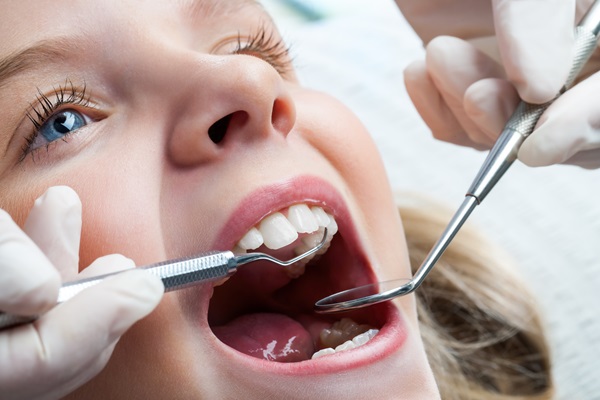What Materials Are Used To Make Dental Sealants?

Dental sealants are commonly made of composite resin, a tooth-colored material that protects teeth from enamel damage and decay. Dental sealants can also be made of a glass ionomer or polyacid resin material. It can be helpful to discuss all of the different types of dental sealants with a dentist before choosing the most appropriate type for you or your child.
An overview of the materials used to make dental sealants
This overview primarily focuses on composite resin as it is more common than alternative sealant material options. This should help you make a more informed decision about choosing dental sealants to prevent dental cavities.
Composite resin dental sealants
As mentioned above, the material that is used most often for dental sealants is composite resin. Composite resin is crafted out of a type of plastic known as acrylic resin. This material offers a tooth-colored appearance and is durable. It is bonded to the chewing surface of premolars and molars to protect these vulnerable areas from tooth decay. A curing light is used to bond the sealants into place.
The pros and cons of composite resin dental sealants
Composite resin dental sealants are recommended more often than glass ionomer because the material is stronger, easy to apply, and closely matches the shade of natural teeth. They may cost slightly more than glass ionomer, but they are still relatively affordable for most patients and often covered by dental insurance.
Glass ionomer dental sealants
Glass ionomer is an effective alternative to composite resin dental sealants, and they are used more for children with baby teeth rather than for older children, teenagers, and adults. Glass ionomer does not use a curing light to bond to teeth but rather is placed using an acidic solution that allows it to stick to the chewing surfaces of molars.
The pros and cons of glass ionomer dental sealants
Glass ionomer offers many of the same benefits as composite resin dental sealants, including a tooth-colored appearance and protection from dental decay. However, they are not as durable as composite resin and may wear away from teeth within five years. Consequently, they are more suitable for children who are less than five years away from losing their baby teeth.
How to care for dental sealants
Dental sealants do not require any special care outside of the good oral hygiene that is required for the natural dental enamel. It is important for those with dental sealants to brush and use mouthwash as recommended by their dentist and schedule cleaning and check-up visits with the dentist to keep the sealants, teeth, and gums clean.
Find out more about dental sealants
You can learn more about dental sealants by contacting us today. We can arrange for you (and/or your child) to come in for a visit. We can help you decide on the best material option as well as assisting you with other oral health needs and goals that you may have.
Request an appointment here: https://hyderdentistry.com or call Shari L. Hyder, DMD at (856) 626-5047 for an appointment in our Oaklyn office.
Check out what others are saying about our dental services on Yelp: Dental Sealants in Oaklyn, NJ.
Related Posts
Thinking about getting dental sealant treatment? Dental sealants are a vital tool for preventing cavities or tooth decay. Tooth decay is a prevalent condition among children and teenagers, and when unchecked, it can lead to other serious oral issues such as premature tooth loss and gum disease. In combination with other preventive care measures such…
Dental sealants are a popular general dentistry procedure that many individuals consider to protect their teeth. Both children and adults can benefit from sealants as there are many associated advantages. The placement is very easy and pain-free, which is advantageous for patients of all ages. This fact is a great reason to find out more…
A preventive dentist promotes long-term oral wellness by focusing on early detection, regular checkups, and proactive measures to protect teeth and gums from disease. By prioritizing prevention, you can avoid many dental issues before they even begin. Explore some of the most frequently asked questions about preventive dentistry, gain valuable insight that can help you…
A preventive dentist focuses on maintaining a patient’s oral health and preventing problems, such as sensitive teeth, from becoming more serious issues, like gum disease. This typically involves routine dental checkups, cleanings, and oral health screenings. By focusing on prevention, patients have a better chance of avoiding the need for more extensive and costly treatments…
